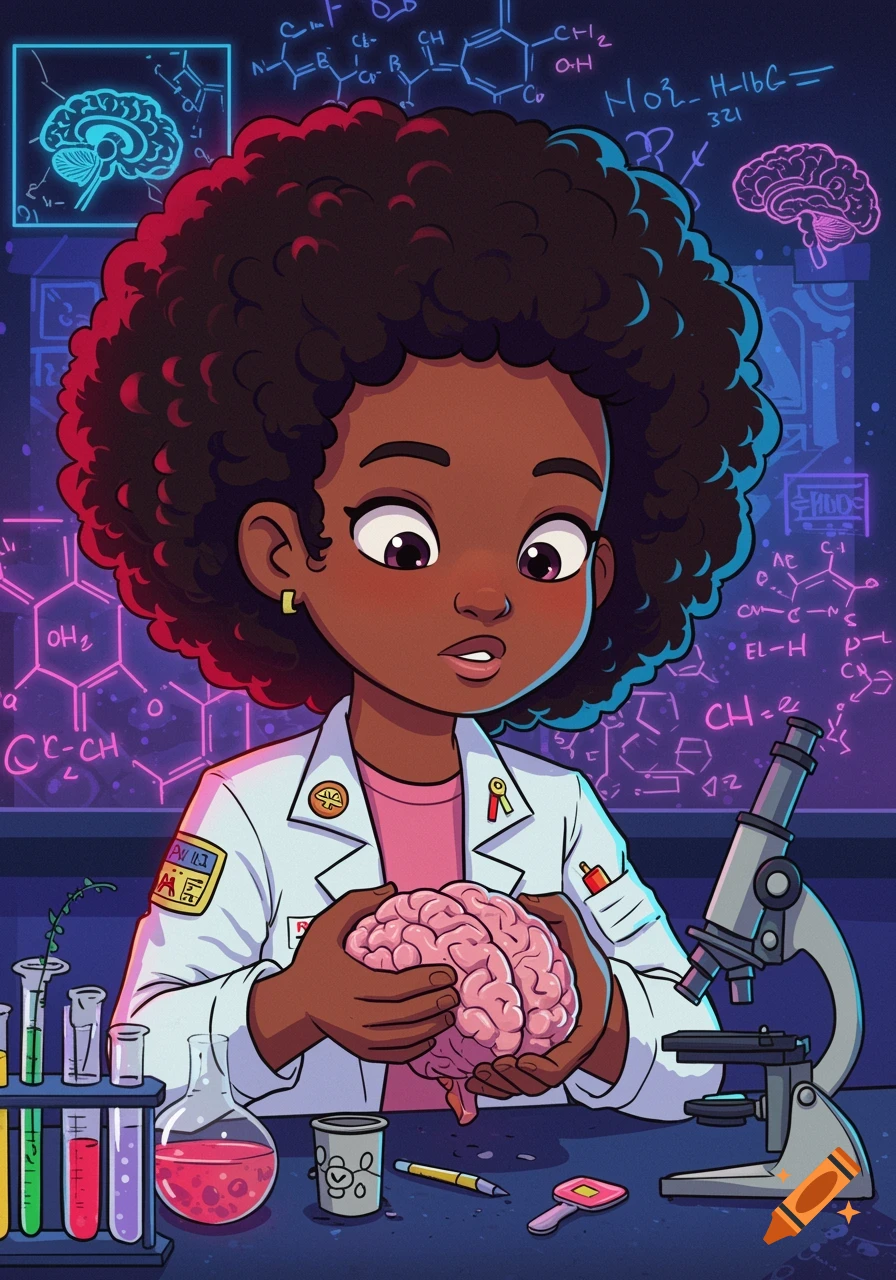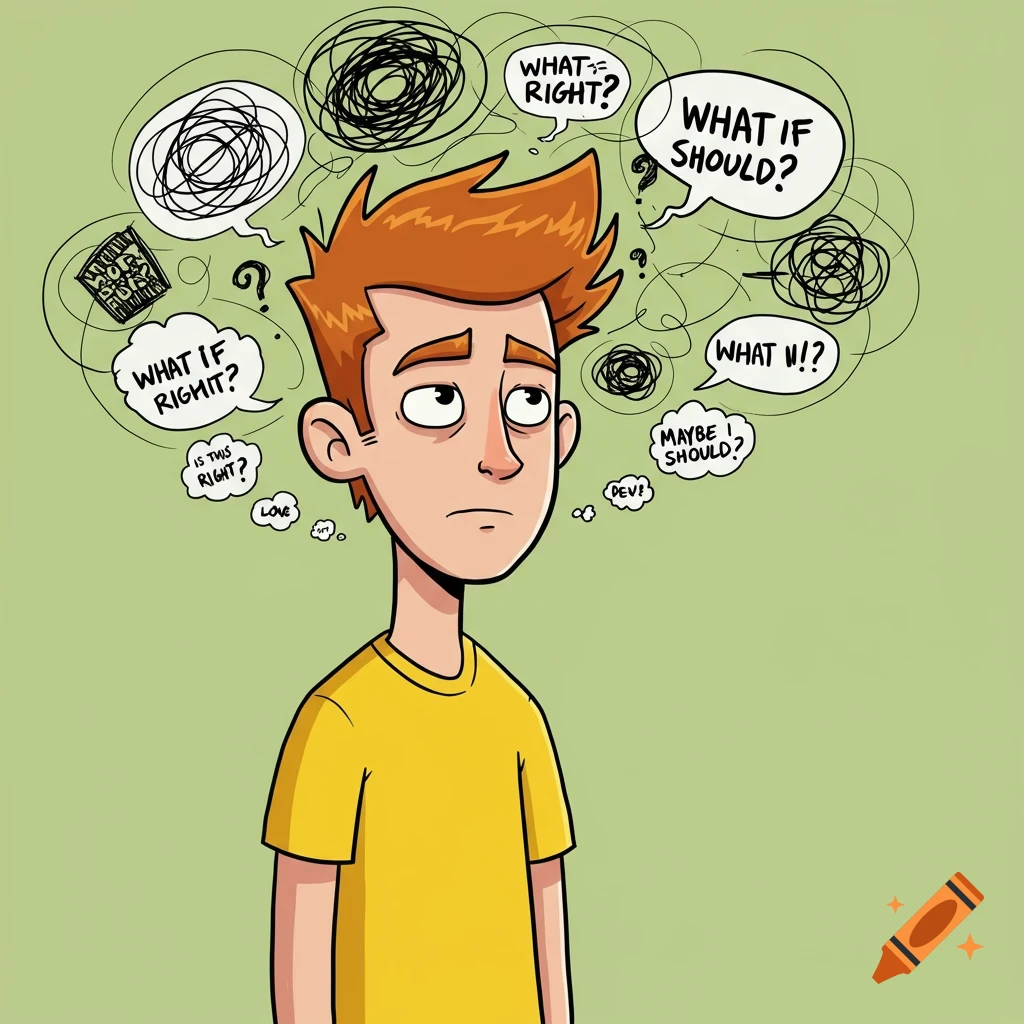
If I could sum up this semester in a single word, it would be: chaotic.
But in the best, most Concordia-core-curriculum, liberally-educated way possible.
When I first signed up for this class, I expected the usual: some readings, some papers, a few discussion boards, and the occasional group project drama (you know the kind). What I didn’t expect was how much this class would actually reflect my entire college journey—equal parts confusion, curiosity, creativity, and yes, caffeine.
Let’s start with a confession: there were more than a few times this semester when I read an article and thought, “What on EARTH are they saying?” I’d stare at the screen, highlight a paragraph, and still be left wondering if the author was speaking English or summoning a philosophical demon. I mean, who knew academic writing could sound like it was translated from Latin to Morse code to Shakespearean English and then given to us?
But weirdly enough, that confusion was part of the fun. Every article I didn’t understand became a personal challenge. I’d dive into group discussions half-lost, half-curious, hoping someone else was also struggling (they usually were), and together we’d decode the texts like amateur detectives with no flashlight. Spoiler alert: sometimes we figured it out. Sometimes we didn’t. But the process of trying, laughing, and talking it through? That’s where the magic happened.
The Joy of Blogging Through It All
One of the biggest highlights for me was creating our blog posts. I didn’t expect to enjoy them as much as I did, but each post became a mini creative outlet. They let me take big ideas from class, blend them with my own personality, and write something that felt authentic. Whether I was venting about the brain gymnastics required to read certain texts or reflecting on how they connected to my life, I felt free to be honest, thoughtful, and even a little goofy.
There’s something powerful about being able to say, “I don’t fully get this… but here’s what I do see, and here’s how it connects to my world.” It reminded me that academic learning doesn’t have to be stiff or perfect—it can be messy, personal, and even funny. Honestly, I felt more connected to what I was learning because I was allowed to process it in my voice.
Learning (Even When I Didn’t Know I Was Learning)
Despite all the moments of confusion, I was constantly learning—sometimes without even realizing it. This class helped me practice two huge life skills: how to make meaning out of the abstract and how to communicate clearly about complicated things. Even when I didn’t fully “get” something, I learned to ask better questions, dig deeper, and keep engaging instead of checking out.
That perseverance? That intellectual grit? That’s pure liberal arts energy. It’s the reason I now approach difficult content with curiosity instead of panic. And trust me, future me—whether in grad school, the workforce, or just arguing with someone on Reddit—is going to appreciate that skill.
Liberal Arts = Learning How to Think, Not What to Think
If someone asked me what it means to study at a liberal arts college like Concordia, I’d tell them this: it means learning how to think, not what to think. It means caring about the connections between ideas, between people, and between disciplines.
This semester, I was constantly bouncing between different perspectives—ethical, cultural, spiritual, historical—and trying to find common threads. I saw how philosophy can inform science, how religion can influence politics, and how self-awareness can change how we engage with the world. One week I was wrestling with systemic injustice, the next I was reflecting on personal values, and somehow it all clicked together by the end.
That’s the beauty of this kind of education. It doesn’t give you one narrow path—it hands you a map and says, “Go explore. Oh, and take snacks.”

Skills That Snuck Up on Me
If I had to highlight one skill that seriously leveled up this semester, it would be adaptive communication—basically, knowing how to explain stuff to different kinds of people. Whether it was breaking down a dense reading in class, writing a creative blog post, or working on a team presentation, I learned how to shift my tone, language, and approach depending on the audience. That’s chef’s kiss valuable in the real world.
And speaking of the real world…
Solving Problems with a Multidisciplinary Brain
One powerful example of applying multiple perspectives was our discussion on obesity. At first glance, it seems like a health or science issue—but it’s so much more than that.
Culturally, food is tied to tradition, identity, and family. “Eating healthier” isn’t just a personal choice—it can feel like breaking from your roots. Economically, not everyone has access to fresh, affordable food. It’s hard to eat clean when fast food is cheaper than vegetables and grocery stores are miles away.
Psychologically, obesity often links to stress, trauma, and mental health struggles. Ethically, we have to ask why junk food is so heavily marketed in low-income areas and who benefits from that. Even spiritually, many people view health through the lens of caring for the body as a gift or responsibility.
That conversation showed me how complex real-world issues are—and how effective solutions need voices from every field. No single perspective is enough on its own, but together, they paint a fuller picture and offer more compassionate, lasting answers.
The Final BREW
So, here we are. The end of the semester. The final blog post. And what a ride it’s been.
This class didn’t just help me wrap up my time at Concordia—it helped me live out what BREW is all about. Becoming responsibly engaged in the world isn’t about having all the answers. It’s about being willing to show up with your questions, your voice, your humility, and your hope. It’s about learning with others, making sense of complexity, and finding ways to contribute meaningfully, even when you feel underqualified.
Most of all, it’s about learning how to laugh through the confusion, create from chaos, and never stop asking, “What does this mean for the world I want to help build?”
This class let me do all of that. And for that, I’m thankful.